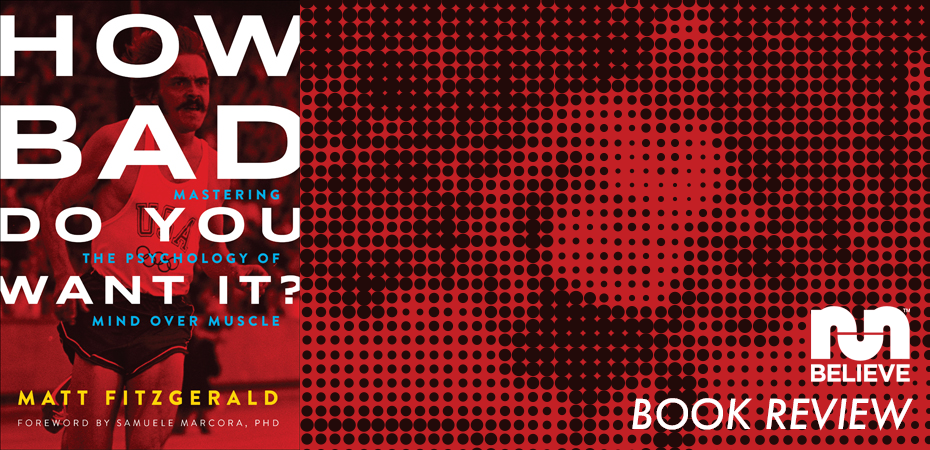
How bad do you want it? It is a simple question that Matt Fitzgerald poses. It is also a mantra. Matt guides you through 12 chapters with examples of endurance athletes challenges and how they battle through with muscle, but more importantly with their brain. This book is a love letter to that untapped, often overlooked power behind real achievements on and off the field.
While reading the book, the stories fueled my thoughts during my runs. I started to realize the duplicitous nature of my thoughts. My first brain, “I should slow my pace to conserve energy.” Then my second brain chimed in, “I know what you’re doing, thanks for trying to preserve my body, but today I’m doing speed.” I was amused. I was noticing something never perceived before in my workouts. My head was battling itself. The ability to see this process came from reading Matt’s book. There is some science behind many of the themes, mostly from Dr. Samuele Marcora‘s research.
How bad do you want it? might help you realize what you want from running. For some it may be new goals and higher achievements, for others, maybe the realization that they don’t really want “it” as bad as they think. For me, the book is a tool to help work through tough challenges. I have the choice to stop the chatter, accept being uncomfortable, and push on.
PS- Matt Fitzgerald is at the Boston Marathon expo this weekend. Stop by and get a signed book.
Book provided by Velopress
• Mental toughness determines how close you can get to your physical limit.
• Bracing yourself for a tough race or workout can boost performance by 15% or more.
• Champions have learned how to give more of what they have.
• The only way to improve performance is by altering how you perceive effort.
• Choking under pressure is a form of self-consciousness.
• Your attitude in daily life is the same one you bring to sports.
• There’s no such thing as going as fast as you can—only going faster than before.
• The fastest racecourse is the one with the loudest spectators.
• Faith in your training is as important as the training itself.
Sammy Wanjiru, Jenny Simpson, Greg LeMond, Siri Lindley, Willie Stewart, Cadel Evans, Nathan Cohen and Joe Sullivan, Paula Newby-Fraser, Ryan Vail, Thomas Voeckler, Ned Overend, Steve Prefontaine, and last of all John “The Penguin” Bingham
Have something to say? Leave a Comment